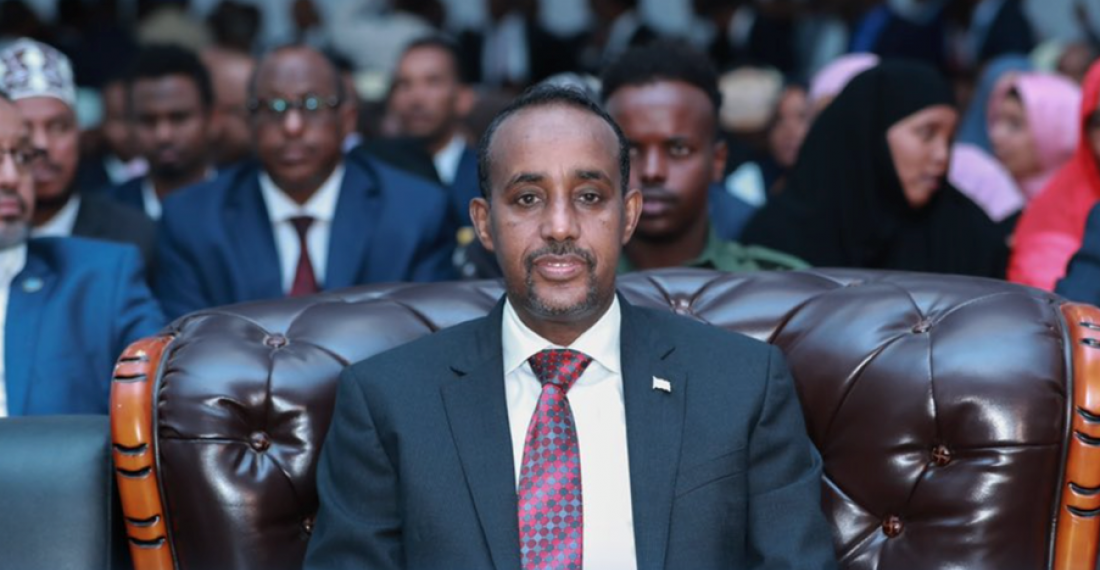On Thursday (15 April), 208 newly elected legislators arrived in Somalia’s capital to be sworn in as members of the 11th Federal Parliament. The venue of the ceremony at the Mogadishu International Airport was heavily secured as Al-Shabaab militants fired mortars in the ceremony’s direction early on Thursday.
Following months of delays and political tussles, the majority of senators and members of parliament were sworn in to their new roles in a ceremony attended by Prime Minister Mohamed Roble. Following the successful swearing in of all electees, members will elect the nations new president.
Current president Mohamed Abdullahi Mohamed, known as Farmaajo, is facing tough opposition from former Presidents Sharif Sheikh Ahmed and Hassan Sheikh Mohamud, among others. President Sheikh Ahmed led the Western-backed Transitional Federal Government (TFG) from 2009 to 2012, championing the fight against Al-Shabaab and his country’s transition to democracy.
President Farmaajo, who President Sheikh Ahmed had designated Prime Minister in 2009, has faced continued challenges from Prime Minister Roble. Last week, the two were at odds after PM Roble declared African Union Ambassador Francisco Madeira persona non grata. It followed a leaked audio-recording in which Madeira was heard discussing PM Roble’s campaign, labelling certain comments from the PM as an“attempt to overthrow Farmaajo”. The Special Representative was told to leave the country within 48 hours
Many in Somalia saw Ambassador Madeira’s comments as partisan and supported the cabinet’s decision to expel the AU representative. Outcries of partisanship were only fueled when President Farmaajo rejected the declaration and publicly supported Ambassador Madeira. The African Union supported Farmaajo’s statement
Further tensions related to the Federal Electoral Implementation Team’s (FEIT) invalidation of some elected candidates are expected to be settled in the coming days, according to the commission overseeing the country’s elections. Security concerns in the form of Al-Shabaab threats, as well as cases of alleged electoral corruption have hindered the already delayed federal elections.
Due to have taken place in December of last year, the elections have been riddled with government incompetence. Following the third delay in late February, the international community, including the US, increased pressure on political actors in the East-African nation. US Secretary of State Antony Blinken announced after the delay that Somalian officials would face visa restrictions, accusing them of “undermining the democratic process in Somalia”.
Parliamentary elections in Somalia follow a complex indirect model, where state legislatures and clan delegates vote in members, who in turn elect the country’s President. The process has been criticized for favouring clan delegates over ordinary citizens’ vote. Clans have formed the backbone of regional government since political upheaval started in Somalia, over two decades ago.
Whilst such a system, in theory, might support political stability, it leaves room for corruption and foreign interference. For the same reason, one can see familiar faces coming in and out of office: established powers hold onto it. Nevertheless, Thursday’s swearing-in ceremony represents a step towards the stability in Somalia’s politics after four months of delay.







